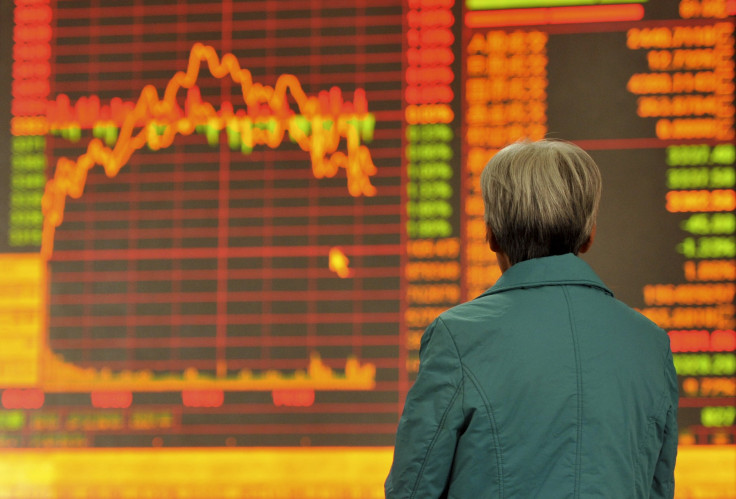US Futures Up, Europe Mixed As Asian Stocks Fall On Fresh China Concerns

Asian stocks tumbled Monday as China’s manufacturing sector continued to shrink, raising fresh concerns over the health of the world’s second largest economy. Meanwhile, U.S. stock futures were trading a shade higher along with most European markets.
“We’re not expecting a protracted downturn but it will require further policy response from the PBOC [China’s central bank] to stabilize the growth profile in China,” Chris Green, an Auckland-based strategist at First NZ Capital Ltd., told Bloomberg.
Europeans stock markets were mixed Monday, with Britain's FTSE 100 down 0.37 percent and Germany's DAX trading up 0.9 percent. France's CAC 40 was up 0.46 percent, while the pan-European Stoxx 600 rose 0.43 percent.
The Purchasing Managers' Index (PMI) data released Monday by Markit showed that U.K. factory growth hit a 16-month high in October. However, some analysts expressed caution over the robustness of the growth.
“We doubt that exports will see sustained growth, given that they are uncompetitive at the current exchange rate. And domestic demand growth is likely to weaken too as consumers’ real income growth slows as inflation rebounds and job gains slow. So to us, this doesn’t look like the start of a manufacturing resurgence,” Samuel Tombs, chief U.K. economist at the consultancy firm Pantheon Macroeconomics, told the Guardian. “In one line: Take with a pinch of salt.”
In the United States, pre-market trading hinted at a positive start. While stock futures on the S&P 500 were largely flat, Dow Jones and Nasdaq futures were up about 0.12 percent.
Earlier on Monday, Asian markets closed mostly down as investors reacted to the slowing pace of manufacturing activity in the region. Japan’s Nikkei 225 was the top loser, ending the day down 2.1 percent. Hong Kong's Hang Seng fell 1.19 percent and India’s Sensex ended 0.37 percent lower. China's Shanghai Composite Stock Exchange lost 1.7 percent, the smaller Shenzhen Composite Index was down 1.33 percent, and the Nasdaq-style ChiNext index was down 1.87 percent.
However, South Korea's Kospi Composite Index reversed a four-day slide to end the day up 0.28 percent.
© Copyright IBTimes 2024. All rights reserved.





















